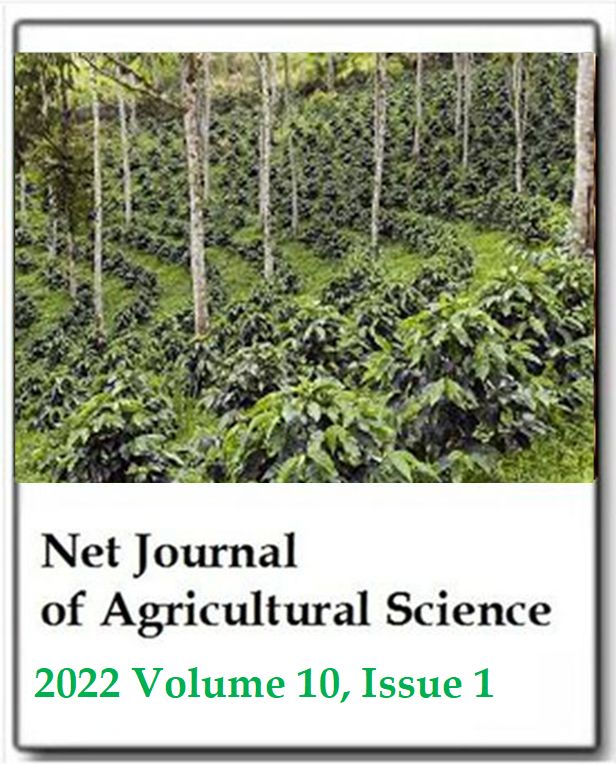Strategies for coping with the effects of agricultural land conflict among crop farmers in Imo State, Nigeria
Chibundu S. N., Matthews-Njoku E. N., Okereke-Ejiogu E. N., Umunakwe P. C., Enugwu J. O. and Oshaji I. O.Net Journal of Agricultural Science
Published: March 25 2022
Volume 10, Issue 1
Pages 30-36
ABSTRACT
The study examined strategies used by crop farmers in coping with the effects of agricultural land conflicts in Imo State, Nigeria. A sample of 288 crop farmers selected using the multistage sampling technique participated in the study. Data were collected from the farmers using a structured interview schedule and analyzed using percentages and mean. The result showed that maize (94.1%), leafy vegetables (86.8%), yam (77.0%), fruity vegetable (73.5%) and plantain (72.8%) were the major crops grown by the farmers. Perceived causes of land conflicts included undocumented agreement over land use between individuals (97.2%), lack of marked boundaries (89.5%), increasing the value of land (89.5%), new laws, policies or programmes (72.8%), migration (72.8%) and land grabbing (72.8%). Perceived effects of land conflict on crop production were a decline in income (X̅ = 3.8), lack of financial resources (X̅ = 3.8), shortage of inputs (X̅ = 3.8), increase in the cost of inputs (X̅ = 3.8), lack of market for produce (X̅ = 3.8), land redundancy (X̅ = 3.7), improperly timed farming activities (X̅= 3.7), loss lives (X̅ = 3.7) and reduction in plot size (X̅ = 3.5, S.D = 1.0). Coping strategies used were divesting from crop production (X̅ = 4.0), diversification of farm enterprises (X̅ = 3.9), appeasing other parties (X̅=3.9), praying for peace (X̅ = 3.9) and adopting less risky income-generating activities (X̅ = 3.8). It was recommended that existing land governance systems be reviewed in order to accommodate recent changes.
Keywords: Conflict resolution, coping strategies, agricultural land, crop farmers, effects, rural areas.
Full Text PDF
ISSN: 2315-9766
